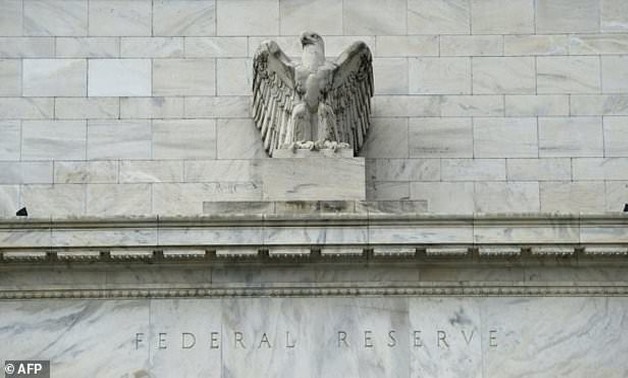
The Federal Reserve weighed in on plans by large US banks to pay out dividends and buy back stock in the final part of the two-phase stress tests, where all 34 big US banks it examined could withstand a severe recession (AFP)
New York - 29 June 2017:The Federal Reserve gave the green light on Wednesday to plans by all 34 large banks seeking to provide big payouts to shareholders after the firms passed the annual stress tests.
It is the first time since the rigorous tests were instituted in 2009 the Fed did not object to the banks' capital plans.
The decision reflects the industry's improved resilience after years of building up capital in the aftermath of the 2008 financial crisis, Fed officials said. The US central bank required just one bank, Capital One Financial, to submit a new capital plan by the end of the year, but did not oppose shareholder payouts under the program, the Comprehensive Capital Analysis and Review (CCAR).
"I'm pleased that the CCAR process has motivated all of the largest banks to achieve healthy capital levels and most to substantially improve their capital planning processes," Fed Governor Jerome Powell said in a statement.
The Fed results were swiftly followed by a barrage of generous payout announcements the major banks.
While the payouts are popular with investors, some analysts have criticized banks for returning huge sums to shareholders instead of investing in their core businesses or increasing lending.
Bank of America boosted its dividend by 60 percent to 12 cents per share, and said it planned up to $12 billion in share buybacks over the next year, plus another $900 million to offset shares awarded under executive compensation plans.
JPMorgan Chase increased its dividend by six cents to 56 cents per share and said it could spend up to $19.4 billion in share repurchases.
Meanwhile, Wells Fargo, which has been hammered by a fake accounts scandal, was cleared to boost its dividend by a penny to 39 cents per share and spend up to $11.5 billion on share repurchases.
"We are pleased by today's CCAR result, which demonstrates the strength of our diversified business model, strong capital position, and our continued focus on risk management," said Wells Fargo chief executive Tim Sloan.
The stress test is designed to examine how large US banks would handle a financial crisis similar in severity to the one in 2008.
The first phase of the test, released last week, showed all 34 banks could withstand a downturn in which US unemployment soared to 10 percent and commercial real estate prices plummeted 35 percent.
The second phase of the results followed qualitative and quantitative examinations of large banks.
The industry's strong performance in the tests likely will embolden the bank lobby to push for an easing of regulations imposed in the wake of the crisis, an initiative that has strong support from President Donald Trump and his administration.
Fed Chair Janet Yellen on Tuesday warned that "memories tend to fade" about the 2008 crisis, hinting of risks in a big regulatory retreat.
The regulations and processes put in place in the years since the start of the crisis mean banks now have much stronger capital and are able to withstand "enormous shocks," she said.
In the case of Capital One, despite getting approval for its payouts, the bank still "exhibited material weaknesses in its capital planning practices," the Fed said.
It cited concerns about planning in "one of its most material businesses" and issues with internal controls.
A senior Fed official said it could block Capital One from making capital distributions down the road if it does not meet expectations.
Capital One held its dividend at 40 cents a share and said its board authorized it to spend up to $1.9 billion for share buybacks, a relatively modest sum compared with other banks.
"We will resubmit our capital plan and are fully committed to addressing the Federal Reserve's concerns with our capital planning process in a timely manner," said Capital One chief executive Richard Fairbank.
American Express initially was projected to have insufficient capital under the stressed scenario, but later cleared the hurdle after submitting an adjusted capital payout plan, the Fed said.
AmEx boosted its quarterly dividend by nine percent to 35 cents per share, and said it would repurchase up to $4.4 billion in stock, up from the $3.3 billion authorization over the prior 12 months.


Comments
Leave a Comment